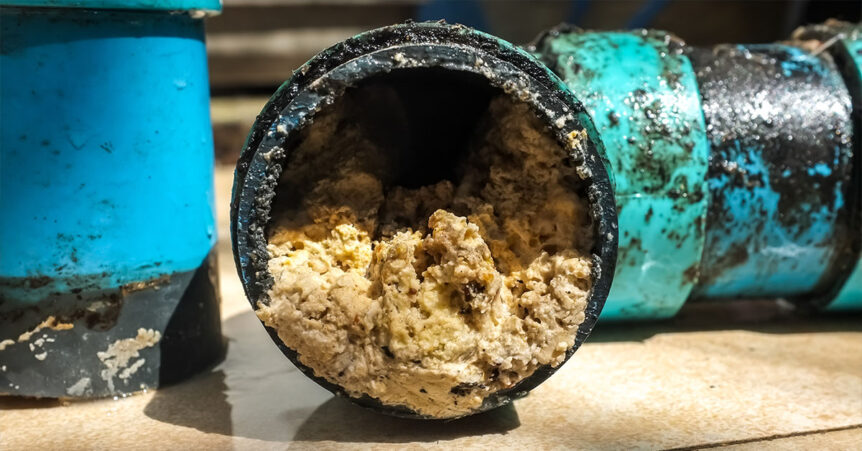- Discover the top 8 everyday habits that can quietly damage your home plumbing. Learn what not to do and how to protect your pipes—especially for Siouxland homeowners.
The Hidden Threats to Your Plumbing System
If you’re a homeowner in the Siouxland area—including Sioux City, South Sioux City, or North Sioux City—you likely take your plumbing system for granted until something goes wrong. Pipes are one of the most critical yet overlooked systems in your home. But did you know that common daily habits could be slowly damaging them? The cost of ignoring these small mistakes can be devastating—from burst pipes and flooding to expensive replacements.
In this guide, we’re breaking down 8 everyday actions that could be silently ruining your plumbing system. We’ll also provide simple, proactive solutions to keep your pipes in top condition, whether you’re dealing with harsh Iowa winters or seasonal water pressure fluctuations.
1. Pouring Grease and Oil Down the Drain
It might seem harmless to rinse off your frying pan in the sink, but grease and oil are some of the most damaging substances for your plumbing. When poured down the drain, these fats solidify inside your pipes, eventually forming stubborn clogs.
Why It’s Harmful:
- Grease sticks to the inner walls of pipes
- Can cause slow drains, full blockages, or even sewer backups
What to Do Instead:
- Pour grease into a can or jar and throw it in the trash once solid
- Wipe pans with paper towels before rinsing
- Install a drain screen to catch food particles
2. Using Chemical Drain Cleaners
When you have a slow drain or clog, your first instinct might be to reach for a bottle of chemical drain cleaner. While these products offer quick fixes, they do long-term damage to your plumbing.
Why It’s Harmful:
- Harsh chemicals corrode pipes, especially older metal ones
- Repeated use can lead to pipe deterioration and leaks
Better Alternatives:
- Use a drain snake or plunger
- Try a baking soda and vinegar mixture followed by hot water
- Call a professional plumber if the clog persists
3. Flushing Non-Flushable Items
Toilets are designed for human waste and toilet paper—nothing more. Flushing items like wipes, paper towels, feminine hygiene products, or even cat litter can wreak havoc on your system.
Why It’s Harmful:
- These items don’t break down easily and can clog your sewer line
- Clogs can cause backflow and serious water damage
What to Do Instead:
- Keep a waste bin in your bathroom
- Only flush toilet paper and waste
4. Ignoring Small Leaks
A dripping faucet or minor leak under the sink may not seem urgent, but small leaks can signal bigger problems and lead to structural damage over time.
Why It’s Harmful:
- Leaks waste water and increase your utility bill
- Moisture can cause mold growth and rot
- Leaks can indicate pressure issues or corrosion
What to Do Instead:
- Inspect your plumbing monthly for leaks
- Tighten fittings or replace washers
- Call a plumber if the leak persists or worsens
5. Overloading the Garbage Disposal
Your garbage disposal can handle a lot, but it’s not invincible. Stuffing it with too much food—or the wrong types—can damage the blades and clog your pipes.
Why It’s Harmful:
- Large or fibrous items can jam the disposal
- Greasy or starchy foods create blockages further down the line
Best Practices:
- Run cold water while using the disposal
- Cut up large items before putting them in
- Avoid putting bones, eggshells, and pasta down the drain
6. Cranking Your Faucet Handles Too Hard
When a faucet starts to leak, many people instinctively twist the handle tighter. Unfortunately, this habit can break the faucet and damage internal components.
Why It’s Harmful:
- Over-tightening wears out washers and seals
- Can cause hairline cracks in older faucets
What to Do Instead:
- Close faucets gently
- Replace worn parts or have a plumber service the fixture
7. Skipping Regular Plumbing Inspections
Out of sight, out of mind—but that’s exactly how small problems become big ones. Regular plumbing inspections are your first line of defense against costly damage.
Why It’s Harmful:
- Undetected leaks, corrosion, or tree root intrusion can escalate quickly
- Early warning signs like discoloration or low pressure may go unnoticed
How to Stay Ahead:
- Schedule annual inspections, especially before winter
- Ask your plumber to check pipes, drains, and water pressure
- Keep a maintenance log for plumbing work
8. Neglecting Outdoor Plumbing and Hoses
In colder climates like Siouxland, failing to winterize outdoor faucets and hoses can lead to frozen pipes, which often burst and cause major water damage.
Why It’s Harmful:
- Water left in hoses can freeze and expand into the pipes
- Outdoor leaks waste water and raise your bill
Winter-Ready Tips:
- Disconnect hoses before the first freeze
- Install insulated faucet covers
- Shut off outdoor water supply and drain lines
Final Thoughts: Protect Your Plumbing, Protect Your Home
The good news? All eight of these plumbing mistakes are preventable with a little knowledge and attention. By making a few simple changes to your daily routine, you can avoid expensive plumbing emergencies and extend the life of your home’s pipes.
For homeowners in Sioux City and the surrounding tri-state area, these tips are especially crucial during seasonal temperature swings and hard water conditions. Stay proactive, and don’t hesitate to call a professional at the first sign of trouble.
Need Help? Call A+ Plumbing
Whether you’re dealing with stubborn clogs, hidden leaks, or pipe repairs, A+ Plumbing has your back. We proudly serve Sioux City, North Sioux City, South Sioux City, and the entire Siouxland region with fast, reliable service.
✅ Licensed & Insured
✅ Emergency Service Available 24/7
✅ Friendly Local Experts
📞 Call us today or schedule your inspection online.

